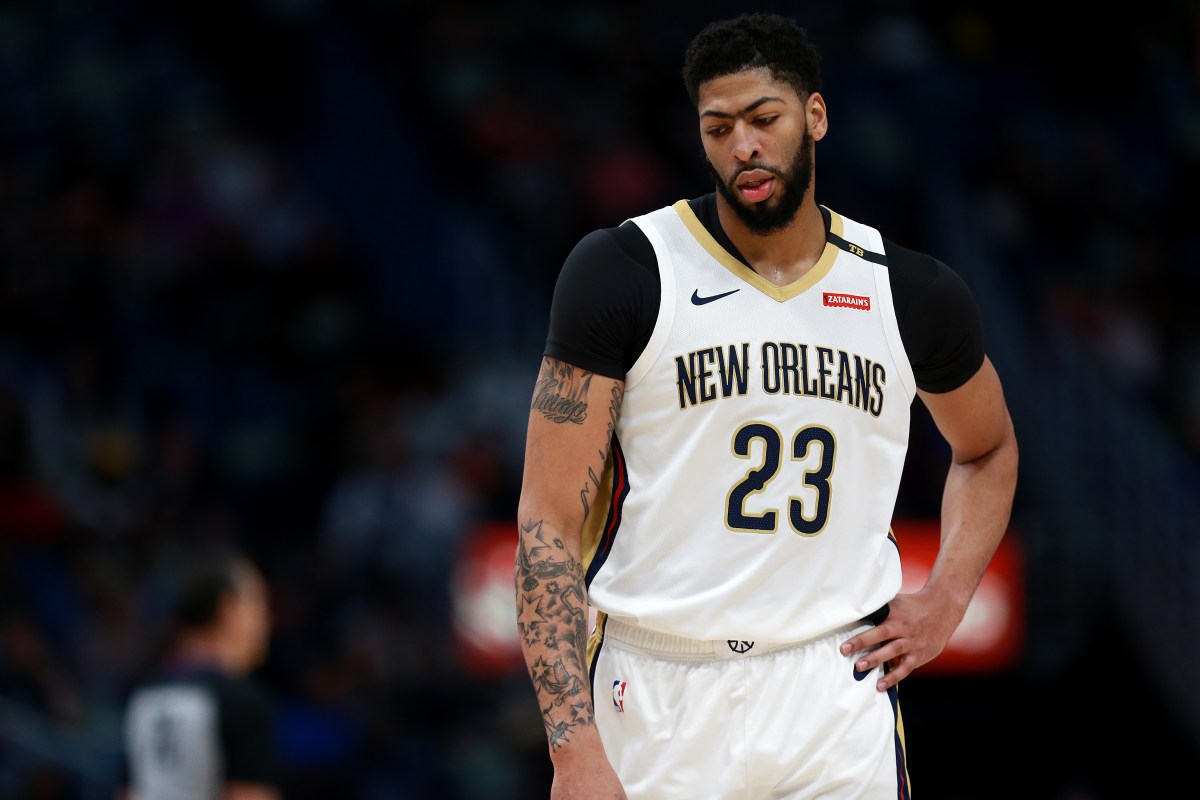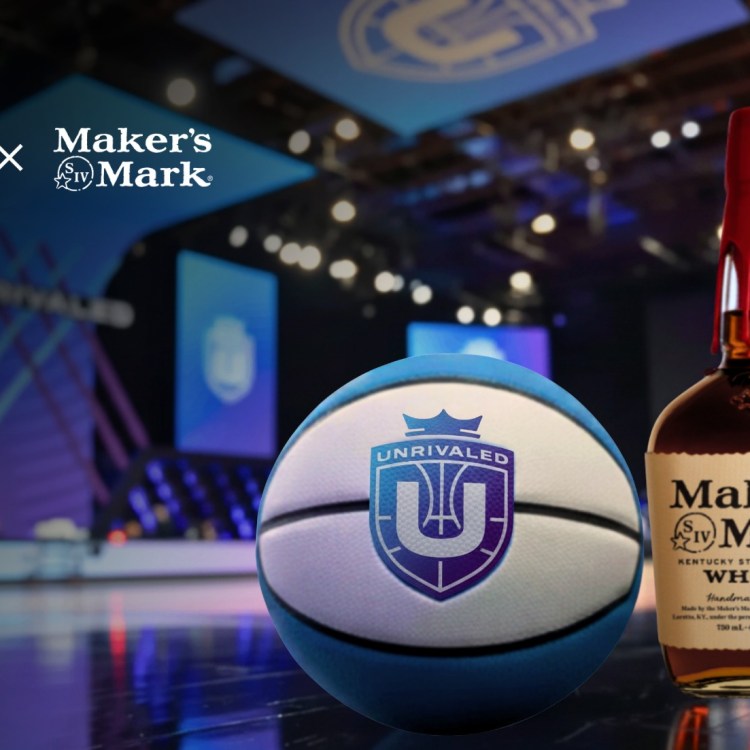When the New Orleans Pelicans scored the No. 1 pick in the NBA draft lottery last month many, including your humble correspondent, pulled out their tinfoil hats and declared the lottery rigged.
With good reason: New Orleans, which is already one of the NBA’s smallest and least-attended markets, was virtually certain to trade franchise star Anthony Davis after he made it clear he wanted out of town, even going so far as to wear a “That’s All Folks” T-shirt toward the end of last season.
And then it happened. The Lakers got Davis to go along with LeBron James and the Pelicans have a young team that can get really dangerous really quickly depending how their top pick pans out.
As the conspiracy theories go, the NBA rigged the lottery to give the Pelicans the ability to pick a new franchise cornerstone, Zion Williamson out of Duke. Even if he’s not as good as Davis, Williamson is about the most-hyped prospect since LeBron James 16 years ago, and his presence will certainly put butts in seats even if the team stinks.
The Pelicans had only the seventh-best chance of winning the Zion sweepstakes and, given the position the franchise is in, it just seems a little too perfect to some they wound up with the rights to snag Williamson.
To support their case, NBA draft lottery truthers need only to go back seven years to find another example of the league stepping in to gift New Orleans a franchise player. In 2012, after the league oversaw the controversial trade of Chris Paul out of New Orleans while the team was in the process of being sold, the Pelicans once again landed the top pick in the draft and were able to select Davis.
A similar situation happened the year before when Cleveland, which had just been spurned by LeBron James when he left to join the Miami Heat. They wound up with the No. 1 pick and were able to pick superstar guard Kyrie Irving to replace him.
From Derrick Rose ending up with his hometown Chicago Bulls to Patrick Ewing going to the New York Knicks via the first draft lottery (and a frozen envelope) in 1985 to Akron native James going to Cleveland in the first place, the history of the lottery is rife with circumstances that seem to put stars in places where they are needed or can shine brightest. Some people think there were multiple shooters in Dallas on that November day in Dallas in 1963, others think small market teams are compensated with the top pick in the draft.
“There’s nothing that prevents them from fixing the lottery if they want to. It’s their league. They can do with it what they will.”
The Fix Is Still In author Brian Tuohy on the NBA
Of course, it could all be a coincidence or good luck. But, then again, even if you think conspiracy theories are hogwash, if you talk to Brian Tuohy, you might think otherwise.
The author of The Fix Is Still In: Corruption and Conspiracies the Pro Sports Leagues Don’t Want You To Know About, Tuohy was originally a screenwriter. He first got interested in sports conspiracies when Michael Jordan retired from the NBA prior to the 1993-94 season while he was quietly being investigated for gambling and then returned to the team in the midst of the following season. The theory is that Jordan’s retirement was actually a substitution for an unofficial league suspension which was never announced or acknowledged by then-commissioner David Stern.
“When Jordan retired from basketball, all those questions about his gambling and who he was hanging out with just completely vanished. But then he was right back in the league and it was like nothing happened,” Tuohy tells InsideHook. “That whole thing just seemed really shady to me and I never believed it. Jordan meant so much to so many other people. I mean, he wasn’t just the NBA. He was McDonald’s and Chevrolet and Nike and Hanes and everything else he endorsed. They couldn’t have him go down the same road Pete Rose went. It meant too much money to too many people.”
For that same reason, money, Tuohy believes the NBA has fixed the lottery in the past. Also, while it’s possible new regulatory laws will be passed now that more and more states are legalizing sports betting, Tuohy claims there isn’t any statute currently on the books to prevent the NBA from fixing games.
“The Sports Bribery Act was passed in 1964 and that specifically states you cannot bribe a player, coach, or referee to alter the outcome of a sporting event,” Tuohy says. “Well, if the NBA says to its referees, ‘Hey, we want you to do this, that, or the other thing out on the court,’ they’re not bribing them to do it. That’s an employer telling the employee how to do their job. And if this is how they want the job done, they’ll go out and do what their employer asks. There’s no law that prevents the NBA from fixing the outcome of one of its own games.”
And, if the league can fix games, what’s to prevent it from fixing the lottery? Nothing.
“There’s nothing that prevents them from fixing the lottery if they want to,” Tuohy says. “It’s their league. They can do with it what they will. What law exists that says they can’t fix the lottery to make sure Patrick Ewing winds up on the New York Knicks? Well, nothing. There’s nothing out there that stops them from doing it, so if they want to, they could. They just decided to put on a show with the whole lottery and draft itself so it feeds into their entertainment industry, which is professional basketball. But they have total control and can do whatever they want with these games and with the lottery.”
Tuohy, who calls himself a skeptic, knows some people will write off what he has to say as conspiracy theories, but he does have a rebuttal.
“If you look outside the United States right now, today, we know soccer matches are being fixed,” he says. “We know tennis matches are being fixed. Cricket matches are being fixed. Rugby matches are being fixed. People are being arrested and convicted of fixing those sports. So it’s amazing that in the United States, none of this happens. What other crime happens worldwide that doesn’t happen in the United States? Apparently, game-fixing is it, which I don’t understand. How is it happening everywhere else but despite billions of dollars being gambled on American sports nobody’s fixing a game? Well, I don’t believe it. It’s only considered a conspiracy theory because people don’t want to believe it potentially could be true.”
The Charge will help you move better, think clearer and stay in the game longer. Subscribe to our wellness newsletter today.



















